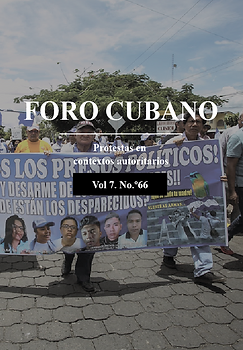Tango Feroz y Simón: La resistencia en contextos autoritarios
Resumen
Tango feroz se desarrolla entre la década de 1960 a 1970 siendo este un periodo permeado por conflictos políticos y sociales en Argentina; para entrar en contexto, Argentina sufrió varios golpes de estado que llevarían a que el país experimentara una transición hacia gobiernos militares, toda esta situación inicia con el derrocamiento de Arturo Frondizi, él asumió la presidencia en 1958 luego de ganar las elecciones presidenciales junto al partido Unión Cívica Radical Intransigente (UCRI), Frondizi tenía como política base modernizar la economía argentina, esto mediante la inversión extranjera y explotación de recursos naturales; estas políticas crearon rechazo por parte de la oposición y sectores opositores, dados sus nexos al peronismo y la cuestión de inversión extranjera. Con el paso del tiempo, y la implementación de sus políticas, generaron gran resistencia dentro de la sociedad civil como en las fuerzas militares, por lo que llevó a que las relaciones entre el ejecutivo y las fuerzas armadas se deterioraron, lo que llevó a este derrocamiento fueron las elecciones provinciales ya que en estas ganó el peronismo, por lo que el triunfo llevó a una preocupación conjunta entre los militares y sectores antiperonistas. Levando a que el 29 de marzo, Frondizi fue arrestado por las fuerzas militares, llevándolo a tomar la decisión de renunciar a su cargo y siendo reemplazado por el presidente del Senado José María Guido. Este golpe de Estado fue uno de los varios golpes que dieron pie a la inestabilidad política que caracterizó a la nación, y dio inicio a un período de dictaduras militares que llegó con represiones contra los movimientos sociales y culturales, y como cualquier régimen iniciaron por censurar cualquier forma de oposición política, social y cultural.


